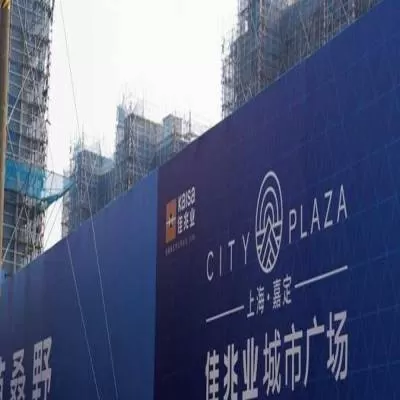- Home
- Real Estate
- With GST and RERA in, what’s next for realty sector?
With GST and RERA in, what’s next for realty sector?
RERA or Real Estate Regulatory Act, 2016 is an Act of the Parliament of India that seeks to protect home-buyers as well as help boost investments in the real estate industry. The Act came into force on May 1, 2017. Soon, GST also kicked in on July 1, replacing the multiple taxes levied by the Central and state governments and subsumed of all the indirect taxes, including central excise duty, commercial tax, octroi tax or charges, Value-Added Tax (VAT) and service tax. RERA along with GST is to bring transparency and better accountability in this sector. However, despite the arrival of the two, the real estate sector is yet to get momentum.
Industry experts are of the view that the industry will work properly only when there is an implementation of these new reforms (RERA and GST) with true spirit and in a time bound manner.
“Both RERA and GST can be regarded as game-changers for the real estate sector as they will provide a fillip by streamlining operations and ensuring transparency. However, the government still needs to put in place a single window clearance mechanism, which is a long-awaited step for the industry,” said Ravish Kapoor, Director, Elan Group.
Many states are still in the process of RERA implementation. Some have even deviated from main guidelines in their respective notifications, which dilute the essence of central law. More important is one area that needs attention – stamp duty. It will continue to be in force even after GST comes into force. The rates vary from state to state, which is from 5-7 per cent. If this is abolished by the state government, the final cost of housing will reduce for sure.
Although RERA and GST have been enacted as the transformative strategies in the real estate sector, the rules and regulations of the agendas are not clear. It may take two to three months for a clear understanding of the policies. Thus, there is a requisite on part of the government to flourish the policies in a more systematic chain for the industry. Once the policies will be enacted in a consistent way, the real estate sector will get a positive push,” said Rahul Singla, Director, Mapsko.
“Reforms like GST and RERA are fundamental reforms, which require substantial time for both implementation and results. Both these reforms are in preliminary stages of their implementation and we are yet to witness their real impact. However in the short term, the market is driven by parameters like interest rates, demand and supply and other economic drivers, all of which are currently in a positive direction. We can expect a major upward movement in real estate in the next two to three quarters,” said Pankaj Bansal, Director, M3M Group.
Which we are yet to see the outcome of these reforms on the sector, all eyes on the government for what future announcements and initiatives!
In India, real estate is the second largest employer after agriculture and is slated to grow at 30 per cent over the next decade. The country was much in need of a regulatory body, which could monitor this sector uniformly. Hence, RERA and GST were launched. RERA or Real Estate Regulatory Act, 2016 is an Act of the Parliament of India that seeks to protect home-buyers as well as help boost investments in the real estate industry. The Act came into force on May 1, 2017. Soon, GST also kicked in on July 1, replacing the multiple taxes levied by the Central and state governments and subsumed of all the indirect taxes, including central excise duty, commercial tax, octroi tax or charges, Value-Added Tax (VAT) and service tax. RERA along with GST is to bring transparency and better accountability in this sector. However, despite the arrival of the two, the real estate sector is yet to get momentum. Industry experts are of the view that the industry will work properly only when there is an implementation of these new reforms (RERA and GST) with true spirit and in a time bound manner. “Both RERA and GST can be regarded as game-changers for the real estate sector as they will provide a fillip by streamlining operations and ensuring transparency. However, the government still needs to put in place a single window clearance mechanism, which is a long-awaited step for the industry,” said Ravish Kapoor, Director, Elan Group. Many states are still in the process of RERA implementation. Some have even deviated from main guidelines in their respective notifications, which dilute the essence of central law. More important is one area that needs attention – stamp duty. It will continue to be in force even after GST comes into force. The rates vary from state to state, which is from 5-7 per cent. If this is abolished by the state government, the final cost of housing will reduce for sure. Although RERA and GST have been enacted as the transformative strategies in the real estate sector, the rules and regulations of the agendas are not clear. It may take two to three months for a clear understanding of the policies. Thus, there is a requisite on part of the government to flourish the policies in a more systematic chain for the industry. Once the policies will be enacted in a consistent way, the real estate sector will get a positive push,” said Rahul Singla, Director, Mapsko. “Reforms like GST and RERA are fundamental reforms, which require substantial time for both implementation and results. Both these reforms are in preliminary stages of their implementation and we are yet to witness their real impact. However in the short term, the market is driven by parameters like interest rates, demand and supply and other economic drivers, all of which are currently in a positive direction. We can expect a major upward movement in real estate in the next two to three quarters,” said Pankaj Bansal, Director, M3M Group. Which we are yet to see the outcome of these reforms on the sector, all eyes on the government for what future announcements and initiatives!
























